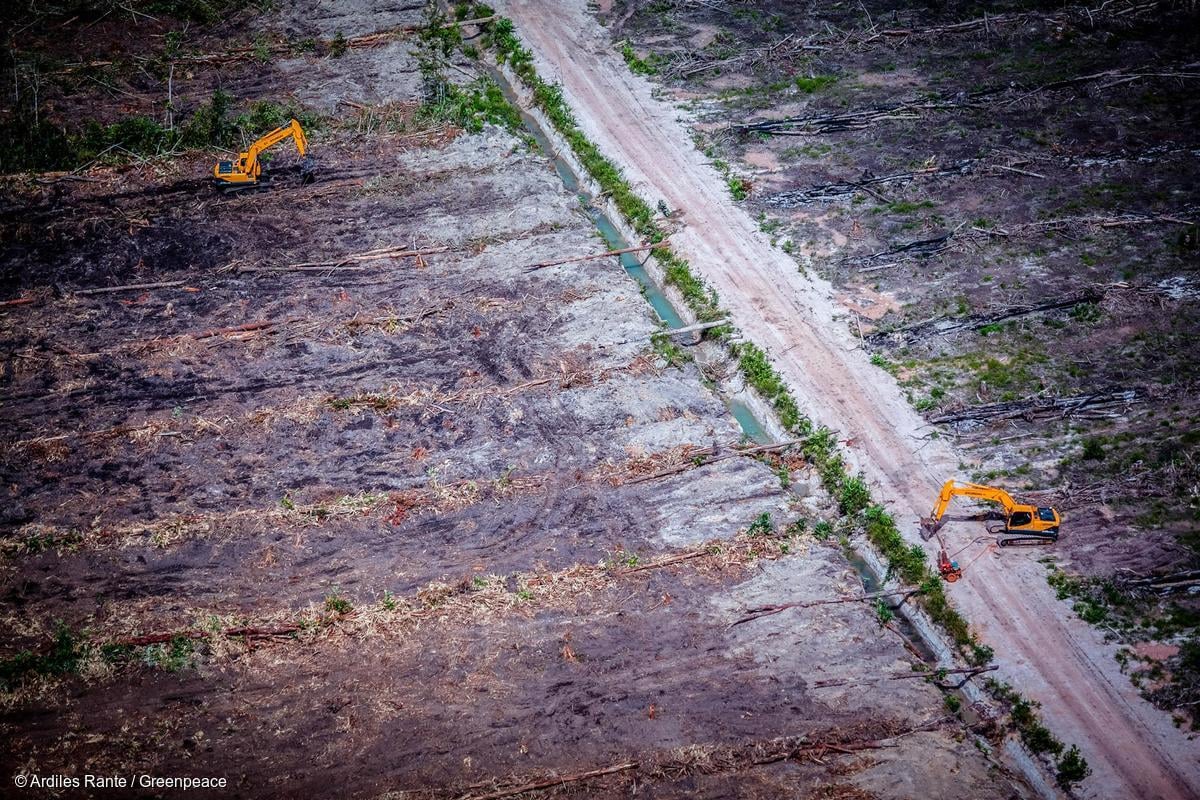As palm oil continues to be a key ingredient in chocolate and candy, this Halloween has us thinking back on our Kit Kat campaign from 2010.

In 2010, Greenpeace launched a video that had us all thinking twice before taking a bite out of Halloween candy. With gory detail, the Kit Kat campaign drove home the death and destruction of rainforests for the expanded production of palm oil. Watch the horror:
Nestlé reacted shortly after and movement followed by Mars, Mondelez, Hershey and many other big consumer companies committed to buying palm oil that is not produced at the cost of destroying rainforests.
For years, these companies have committed to “No deforestation, No peatland, No exploitation” (NDPE) policies, pledging to not buy palm oil from forest destroyers.

Aerial view in Papua province, Indonesia’s last intact forest frontier. Excavators are at work among the burnt remains of debris from forest clearance in the PT Dongin Prabhawa oil palm concession in Mappi district, Papua. The concession is controlled by the Korindo Group.
So why is palm oil still a leading driver of deforestation?
The answer is simple… these companies are not enforcing their own policies and continue to buy their palm oil from companies that are destroying rainforests.
The October 2018 report from the Intergovernmental Panel on Climate Change (IPCC) states that halting deforestation is “just as urgent” as eliminating the use of fossil fuels. As the third largest tract of tropical forest in the world, Indonesia’s rainforests store a huge amount of carbon, which protects and regulate our atmosphere — their destruction is something we should all fear. When forests and peatlands are destroyed massive amounts of greenhouse gases are released and this is contributing to global emissions and is detrimental to our health and our climate.
Producing palm oil at the expense of the rainforests does not need to continue. We know production can be done without destroying rainforests, threatening wildlife and violating human rights. If palm oil continues to be a key ingredient in chocolate and candy, CEOs of these corporations need to stand up and actually lead. No more destruction. No more death.
Join us in calling on leading brands to only use palm oil from companies that aren’t destroying rainforests. This starts by dropping Wilmar, the dirtiest palm oil giant in the world and the largest trader that sells to our leading Halloween candy makers until it can prove its palm oil is clean.
